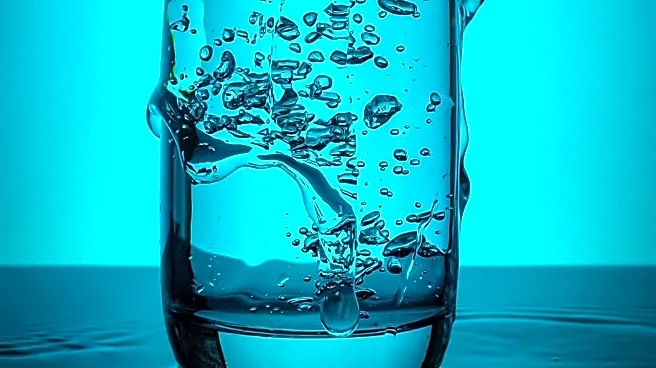What is the story about?
What's Happening?
A recent study published in the Journal of Applied Physiology suggests that maintaining proper hydration can help reduce stress and anxiety levels. The research involved 62 participants divided into two groups based on their daily fluid intake. Those in the 'low fluid' group consumed less than 1.5 liters of fluids daily, while the 'high fluid' group met the recommended intake of two liters for women and 2.5 liters for men. Participants underwent a stress test, and results showed that the 'low fluid' group experienced a significant increase in cortisol, a stress hormone, compared to the 'high fluid' group. The study highlights the connection between the body's water-regulation system and the brain's stress-response center, suggesting that dehydration can exacerbate stress responses.
Why It's Important?
The findings underscore the potential health benefits of adequate hydration, particularly in managing stress and anxiety. High cortisol levels, associated with dehydration, have been linked to increased risks of heart disease, kidney problems, and diabetes. This research suggests that simple lifestyle changes, such as increasing water intake, could have significant implications for mental health and overall well-being. The study also highlights the importance of recognizing dehydration symptoms, which can mimic anxiety, and suggests that monitoring urine color can be a practical way to assess hydration status.
What's Next?
While the study provides valuable insights, further research is needed to explore the long-term effects of hydration on stress and anxiety. Health professionals may consider incorporating hydration advice into stress management and mental health strategies. Public health campaigns could also emphasize the importance of adequate fluid intake as part of a holistic approach to mental and physical health.

















